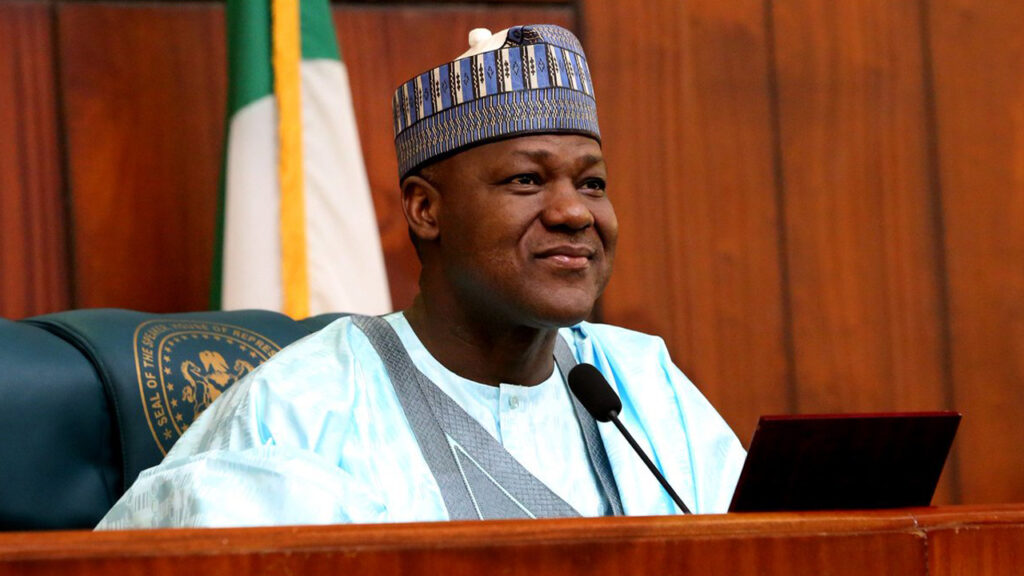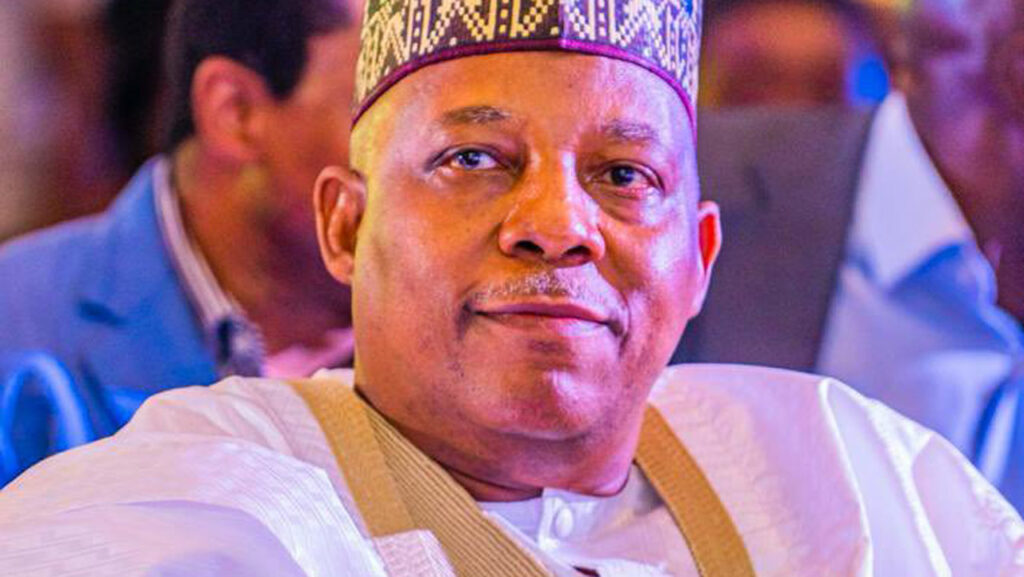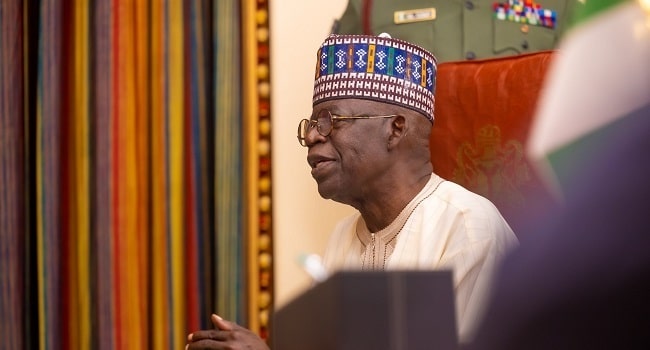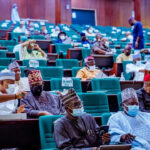Former Speaker of the House of Representatives, Yakubu Dogara, revealed that his monthly salary as a presiding officer was less than ₦400,000 while his monthly “total impress” was ₦25 million.
He argued that the misconception by Nigerians that lawmakers earn huge salaries and allowances has given the National Assembly a negative image, leading to them being called thieves even in public forums.
Dogara stated this at the opening of a three-day ‘Open Week’ celebration organised by the House of Representatives on Wednesday in Abuja.
The event was attended by members of the diplomatic corps, lawmakers at the state and federal levels, ministers, governors, lawmakers, and presiding officers.
Dogara, who was the speaker of the 8th House between 2015-19, maintained that the time has come for the National Assembly to reveal its finances to dispel the notion that legislators receive a humongous amount of money monthly.
The pay package of public office holders, particularly the salaries and allowances of National Assembly members, has been an issue of concern among Nigerians.
President of the ninth Senate, Ahmed Lawan, had in 2021 revealed that the monthly salary of a Senator was ₦1.5 million while that of a member of the House of Representatives was ₦1.3 million.
But Dogara said the earnings of members of the National Assembly, which have been a hot topic, cannot last them more than three days.
According to him, it is important for Nigeria to allow their representatives to work and limit the financial demands on them occasioned by the belief that they earn huge salaries and allowances.
READ ALSO:Dogara seeks release of 25% levy palm oil levy
He added that the misconception of huge salaries and allowances by Nigerians has given the National Assembly a negative image, where they are called thieves even in public forums.
He stated: “While I was Speaker, my salary was less than ₦400,000. I don’t know if it has been increased now. My total impress was ₦25 million, and I told my accountant to open a separate account for the impress, and I never once took any money out of that account. Everything that came into that account was used to cater to the needs of constituents.
“My accountant complained about the level of demand on the account, and I told him if the money there is finished, borrow, and when money comes, you return it to where you had taken money from.
“I am saying this so Nigerians will give their legislators breathing space and know that the narrative is not true about members’ pay.
“We all know that democracy is expensive, and if we think that it is too expensive, maybe we should ask our political scientists to develop for us a local model that will be cheaper for us.”
President Bola Ahmed Tinubu, represented by the Secretary to the Government of the Federation, Senator George Akume, urged lawmakers to create platforms where citizens can air their concerns and actively participate in public hearings to enhance law-making.
Tinubu, who assured that his administration would continue to respect the principle of checks and balances as enshrined in the Constitution, reiterated the commitment of the executive to working with other arms of government to achieve the Renewed Hope Agenda of his administration.
He said citizen participation in the governance process was key to achieving true democracy where the well-being of the citizens would be given the desired priority.
He challenged the lawmakers to engage in robust oversight of the activities of government as a way of carrying out their checks and balances function to ensure accountability while ensuring that corrections are made where the need arises.
Unveiling the scorecard of the 10th House of Representatives, Speaker Abbas Tajudeen disclosed that out of 240 petitions submitted before it by the public, only 40 petitions have been resolved in the last year.
He said that public petitions remained a powerful mechanism for the House to address grievances from the public.
According to him, in the year under review, out of the 240 public petitions currently under investigation, a total of 40 cases have been closed.
He added that in contrast, 10 cases had been laid before the House for further consideration, adding that by this, the House had shown that it was sensitive and responsive to the people’s yearnings.
He said that the House had also played a pivotal role in mediating conflicts and ensuring the smooth resolution of crises.
READ ALSO:How Nigeria can generate N16.2tn annually from palm oil – Dogara
On public hearings, the Speaker said: “Analysis of sessional reports from committees of the First Session of the 10th House reveals that committees conducted numerous public hearings between November and December 2023. Also, as of June 13, 2024, 679 motions were moved on the floor of the 10th House. Of these, 672 (99 percent) were being considered at various committees, while seven were negative. Among these motions, 43 were referred to ad-hoc committees and 629 to standing committees.”
Speaking on the oversight visits and inspections by the House in one year, the Speaker disclosed that “the House Committees visited 107 Ministries, Departments, Agencies (MDAs), and projects nationwide. This is despite most standing committees being inaugurated between November and December 2023, averaging 1-2 visits per committee. These visits aimed to ensure that government programmes and administration were implemented effectively, efficiently, and in alignment with legislative intent.”
“The House committees held a total of 502 meetings in the first session of the 10th House. Further analysis shows the frequency distribution of meetings conducted by 117 House committees. The data reveals that 91 committees (77.8 percent) conducted between 1 and 5 meetings, 21 committees (17.9 percent) held between 6 and 10 meetings, and four committees held more than 11 meetings each. However, one committee did not convene any meetings during this period,” he added.
Also speaking, the Deputy Speaker of the House of Representatives, Benjamin Kalu, said that “an open legislature is not just about engagement, but about data-driven decision-making.”
“We, as your representatives, have a responsibility to understand the nation’s most immediate needs and address them accordingly.”













